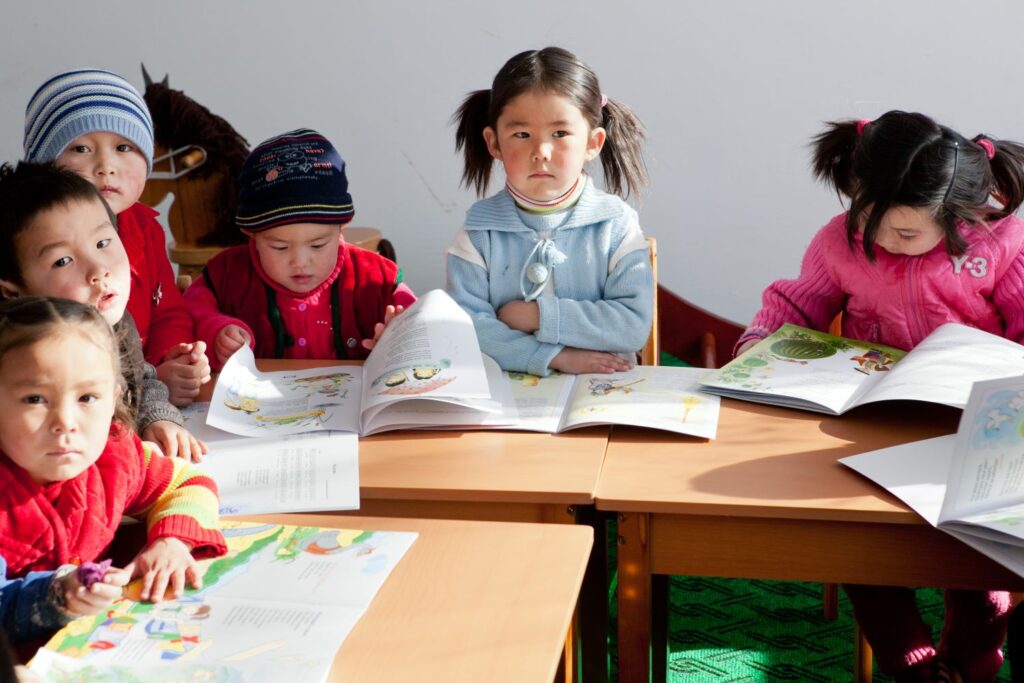The results of the first Health Behaviour in School-Aged Children (HBSC) national study were presented during a roundtable on 10 February 2023 in Bishkek, Kyrgyzstan – with the participation of representatives of government ministries, Parliament, public health organizations and the media. The survey was conducted by the National Centre of Maternity and Childhood Care and supported by WHO and the United Nations Children’s Fund (UNICEF).
The nationwide survey covered 9649 school children aged 11, 13 and 15 in 172 targeted schools. The study looked at eating behaviours and oral health; physical activity; overweight, underweight and body image; alcohol and tobacco consumption; bullying and violence; injuries; social and mental well-being; school experience; and social media behaviour, and showed age and gender differences in health behaviours that have important practical implications for social and health interventions.
Findings highlight worrying trends
The study showed that 31.8% of the children surveyed were victims of bullying, and the proportion of adolescents involved in bullying against other children is 27.7%. Such bullying can affect the physical and mental health of adolescents and lead to low engagement in learning, anxiety, post-traumatic stress and lack of self-esteem.
While half of those surveyed receive significant peer support, 33.6% of respondents said they had felt sad nearly every day for 2 or more consecutive weeks in the past 12 months. There is a significant upward trend in this indicator with age, especially among girls aged 15 (47.7%) compared to 11-year-olds (27.9%). Also, 1% of adolescents were found to drink some kind of alcoholic beverage at least once a week.
The survey uses data to get a complete picture of the health and well-being of the younger generation in their social context.
“Investing in adolescent well-being brings many dividends in terms of health and economic benefits to adolescents now, in their future lives and in the next generation, and thus increases human capital. Coordinated investments in health and education that bring complementary benefits are the smartest investments,” said Dr Shahin Huseynov, Special Representative of the WHO Regional Director in the Kyrgyz Republic and ad interim Head of Office.
About the HBSC survey
The HBSC study was first initiated in 1982 in Europe and it was recognized as a standardized study by WHO/Europe in 1983. The HBSC network is made up of 51 countries in Europe and north America. In Kyrgyzstan, a pilot survey was conducted in 2019, the experience of which served as the basis for the first national survey.
Source: WHO


